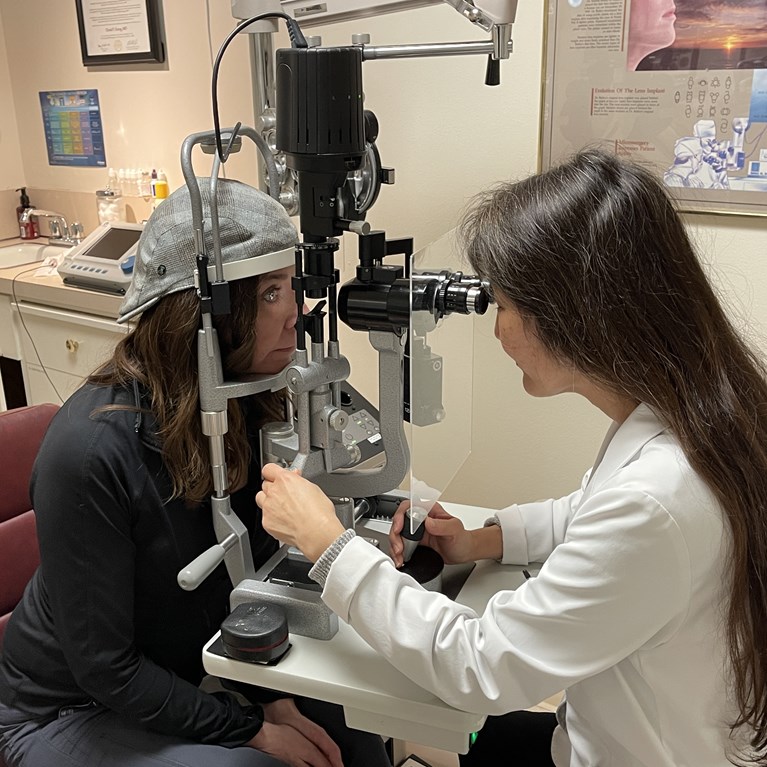

Sustainable Clinic
Save costs and impress your patients by “greening” the office. Your choices can have a significant impact on reducing emissions, as well as improving the health and environment of your community.
What’s Important - Clinic Waste

Reduce Your Medical Office Emissions
While most of the greenhouse gas emissions from the healthcare sector are attributed to hospitals and other large facilities, physician offices are also huge contributors. You can take action to reduce the environmental impact of your office. It will save you money and increase efficiency, while patients and communities appreciate the sustainability efforts. Explore resources to reduce costs, waste, and energy use in your office.

My Green Doctor: Reduce Costs and Waste by making your Clinic more Sustainable
My Green Doctor is the world’s leading practice management resource for healthcare clinics, offices, and outpatient centers on environmental sustainability and climate change. It is a free resource for ophthalmologists and eye care practitioners.
Register as a Partner Society member and use the discount code MGDEYESUSTAIN to get free full access to My Green Doctor. Check out the “Three Minute Video” that explains how easy it is to add My Green Doctor to your next agenda.

Create a Medical Waste Disposal Program in 5 Steps
Learn 5 steps to creating a medical waste disposal program that will save you money. Try the online savings calculator to see how much your practice can save!
German study investigates trends in waste generation from prescription-based treatments for Dry Eye Disease
Waste reduction and management in ophthalmology is key to sustainable practices. Dry Eye Disease is one of the most commonly treated ophthalmic diseases, often with topical lubricating and anti-inflammatory eye drops. However, no study has quantified the carbon footprint or waste volume topical therapies for dry eye disease. Investigators from Germany quantified the annual waste volume generated by measuring the net waste weight of different commonly used topical products. They found that since 2016, waste volumes attributed to prescription-based treatments in the country have increased from 7.13 tons to 20.64 tons. Multi dose products generated significantly less waste than single dose products. Products without a filter generated less waste, but also relied on addition of preservatives. Overall, decreasing packaging waste, such as through QR codes for prescription information, using multi dose products, and novel integrated filter techniques may help reduce waste associated with dry eye medications.
The Cost of Disposable Instruments
Conventional wisdom often suggests that sustainability is more expensive than more wasteful practices. But a recent UK study in oculoplastics suggests this may not always be the case. In this study, the authors found that over a 10-year period, between the costs of initial purchase, sterilization, repair, and replacement, the total overall cost of non-disposable instruments was £174,046, while the overall estimated cost of disposable instruments was £450,648, meaning an additional £276,602 would be spent over a 10-year period if disposables were used instead of non-disposables. Based on these findings, pursuing waste-reducing measures may not be as financially discouraged as previously thought.
Exploring the Carbon Footprint of Electronic Medical Records (EMR)
Electronic medical records (EMR) are gaining worldwide popularity amongst medical providers. Thiel et al explore the environmental implications of using EMR systems compared to paper-record keeping systems. In a novel Life Cycle Assessment Study, the investigators assess environmental emissions from paper medical records and a replacement EMR system at a high-volume eye hospital in Southern India. They found that the EMR system emitted substantially more greenhouse gases (0.361 kg CO2e per patient visit) compared to a paper medical system (0.037 kg CO2e per patient visit). However, they also found that the source of electricity significantly affected greenhouse gas emissions; if using renewable sources, EMR emissions dropped to 0.046 kg CO2e/patient. Overall, the authors highlight that EMR systems produce similar levels of carbon emissions as paper records if utilizing decarbonized energy sources. The healthcare-specific benefits of EMRs including operational efficiency and expanded access to care may be accentuated by sustainably designed EMR systems.
Eliminating operating room waste: A paradigm-altering global movement among ophthalmologists - EyeWorld Article
In this EyeSustain update for the ASCRS Eyeworld Magazine, a major 2023 article investigating the opinions of European Ophthalmologists to OR waste and sustainability is reviewed by Dr. Sjoerd Elferink, an author on the publication, and Dr. Shefali Sood. The article is a follow-up to a prior study investigating the same themes amongst ophthalmologists practicing in the United States. Overall, European and American ophthalmologists had similar attitudes toward waste reduction in the OR, including modifying OR practices to limit single use products. An overwhelming majority of European ophthalmologists expressed concern over global climate change and sought to practice sustainability in their clinics and ORs. In total, the results of both the ESCRS and ASCRS surveys demonstrate the global impetus amongst ophthalmologists to develop strategies for sustainable surgery.
Forging A Path Toward A More Sustainable Laboratory
Consistent with the mission of EyeSustain, this article from Trends In Biochemical Sciences details the sustainability efforts of one laboratory from Stanford. These modifications to standard operating procedure are reproducible amongst other laboratories interested in decreasing their environmental impact.